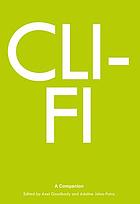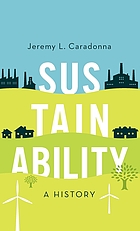Eco-Fiction
Eco-Fiction Critical Studies
-
-
-
-
-
-
Hollywood Utopia by
ISBN: 9781841509129 -
Contact Us
- Ask a Question
- Make an Appointment
- 1-800-846-4085
- 210-441-3197
- library@ollusa.edu
- @ollu_library
- Sueltenfuss Library
The Library's Sustainability Group

The Library's Sustainability Group was created to help encourage the use of renewable resources and recommend sustainable practices within the library. In addition, the Sustainability Group promotes items in the library's collection that focus on the environment and environmentalism and encourages campus engagement and cooperation with groups throughout OLLU.
For more information contact group members:
Agatha Calica
Linda Dinh
Gabriel Lopez
Streaming Features
Additional Resources

American Library Association
Sustainability and Libraries Guide
During her term as ALA President, in 1999-2000, Sarah Ann Long initiated a project, in cooperation with Global Learning of New Jersey, entitled "Libraries Build Sustainable Communities." The basic definition of "sustainable" is the use and stewardship of resources today that preserves them for tomorrow, and a sustainable community is one that is healthy and prosperous over the long term. The project defined three components of a sustainable community--Economy, Ecology, and Equity. Economy is the management, or stewardship, of the resources; Ecology is the relationship of the community with its environment, particularly the natural environment; and Equity is fairness to all. "Green" libraries are a subset of this issue.
Click here for more information

Association of College & Research Libraries
Academic Library Building Design: Resources for Planning: Gren Building Resources
According to the U.S. Green Building Council, green building is defined as “a holistic concept that starts with the understanding that the built environment can have profound effects, both positive and negative, on the natural environment, as well as the people who inhabit buildings every day. The International Well Building Institute is focusing on health and wellness in buildings to improve the human experience through design.
Sustainability is about design, construction and operational decisions that will amplify the positive and mitigate the negative impacts of choices we make throughout the entire life cycle of a building. While there are many different definitions of green building out there, it is generally accepted as the planning, design, construction, and operations of buildings with several central, foremost considerations: energy use, water use, indoor environmental quality, material section and the building's effects on its site” (https://www.usgbc.org/articles/what-green-building).
Click here for more information
OCLC Global Council
Sustainable Development and Libraries: Global Goals, Collective Action
Libraries can bring unique strengths and collective muscle to global sustainability challenges. To inspire more conversations, expanded engagement, and action that leads to impact, OCLC’s Global Council has set its FY21 area of focus on sustainability.
In 2015, all United Nations Member States adopted the 2030 Agenda for Sustainable Development that included a list of 17 Sustainable Development Goals (SDGs). Publication of this agenda got the attention of many industries, including library organizations. Most notably, the International Federation of Library Associations and Institutions (IFLA) actively supports the roles libraries can play in planning and implementing the UN 2030 Agenda and the SDGs through its International Advocacy Programme (IAP).
To build on this momentum, the Global Council will support all 17 SDGs, focusing on the following five specifically as areas libraries can impact the most:
Quality education (SDG #4)
Decent work and economic growth (SDG #8)
Reduced inequalities (SDG #10)
Peace, justice and strong institutions (SDG #16)
Partnerships for the goals (SDG #17)
These goals inform the research objectives of our survey and also guide the learning and professional development opportunities of our webinar series.
Click here for more information

The International Federation of Library Associations and Institutions
Libraries, Development and the United Nations 2030 Agenda
IFLA’s consistent position is that access to information is essential in achieving the SDGs, and that libraries are not only key partners for governments but are already contributing to progress towards the achievement of the 17 Goals.
For this reason, IFLA launched the International Advocacy Programme (IAP) in 2016, a new capacity-building programme designed to promote and support the role libraries can play in the planning and implementation of the UN 2030 Agenda and the SDGs.
The objectives of the IAP are to:
Raise the level of awareness on the SDGs of library workers at community, national and regional levels, and to promote the important role libraries can play in development by contributing to the UN 2030 Agenda and the SDGs;
Increase the participation of library associations and public library representatives in advocacy work at national and regional levels to secure sustainable public access to information through library services and programmes.
Click here for more information
United Nations
United Nations 2030 Agenda for Sustainable Development
The 2030 Agenda for Sustainable Development, adopted by all United Nations Member States in 2015, provides a shared blueprint for peace and prosperity for people and the planet, now and into the future. At its heart are the 17 Sustainable Development Goals (SDGs), which are an urgent call for action by all countries - developed and developing - in a global partnership. They recognize that ending poverty and other deprivations must go hand-in-hand with strategies that improve health and education, reduce inequality, and spur economic growth – all while tackling climate change and working to preserve our oceans and forests.
Click here for more information
Assistant Director, Instruction and User Services
Databases

Sustainability Resouces on JSTOR
Sustainability, also commonly known as ‘resilience,’ is the ability to adapt to and overcome environmental, ecological, economic, developmental and other challenges to ensure long-term growth, and the literature available on JSTOR looks at this broad topic through a very interdisciplinary lens.
GreenFILE provides scholarly, government and general-interest sources covering the environmental effects of individuals, corporations and governments and what can be done at each level to minimize negative impacts.
Print Books
-
-
-
-
Reducing and Recycling Waste by
Call Number: JUV 363.72 INS REDISBN: 9780836844290Publication Date: 2005-01-01 -
-
-
Ebooks
-
-
-
-
Sustainable Resource Recovery and Zero Waste Approaches by
ISBN: 9780444642837Publication Date: 2019-07-18 -
-




